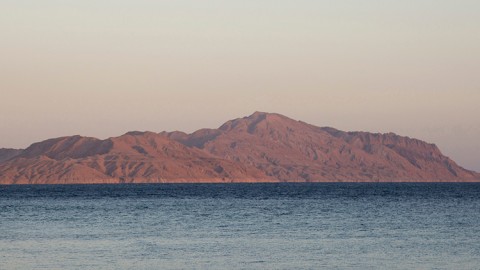It is a matter of consensus among experts that economic forecasts are about making calculated best guesses. Though some may say numbers never lie, it is undeniable that numbers cannot always get the picture exactly right. Egypt’s petroleum sector is a living example of why forecasts cannot be taken as unquestionable truths since it has had a history of defying expectations, despite the impact of global challenges. Throughout the past years, the role of Egypt’s petroleum sector in supporting the national economy has grown and will only continue to demonstrate endurance in the face of difficulties that many nations across the world are facing.
The first and most significant contribution to any healthy economy is its primary exports. Highlighted as a key export that is bound to become one of the country’s biggest moneymakers when it comes to trade with Europe, natural gas is the first industry that is noted by many to be a rapidly expanding field within the Egyptian hydrocarbon trade.
The discovery of major natural gas reserves has been a major contributor to the remarkable surge witnessed in petroleum exports recently. In a statement, Minister of Petroleum and Mineral Resources Tarek El Molla noted that, in 2022, Egypt witnessed a record achievement, with its petroleum exports reaching $18.2 billion. In the previous year, petroleum exports were only $12.9 billion, and in 2020 it was $7 billion. The root cause behind this significant growth in hydrocarbon exports was none other than the expansion of Egypt’s booming natural gas industry which was only made possible through increased exploration pushed by the surge of international investments in upstream activities.
This figure is only expected to increase within the coming year, according to the World Bank (WB), which forecasted a 30.6% increase in Egyptian oil and gas exports during fiscal year (FY) 2022/23, predicted to be valued at $23.5 billion.
Apart from the role of the petroleum sector in enhancing the country’s exports, the industry’s role in the GDP’s growth has been phenomenal. As one of the main indicators of economic health, the general improvements in Egypt’s GDP in recent years correlate with the enhancements and developments taking place within the national petroleum sector.
The WB report indicated that Egypt’s account deficit in FY2021/22 shrank to 3.5% of the GDP, compared with 4.4% in the previous year. Experts highlight that this development is directly related to enhancements in oil-related trade in FY2021/22, especially the stellar performance of Egyptian liquefied natural gas (LNG) exports amid skyrocketing global gas prices.
Development in the natural gas field has taken a sharp turn even over a longer period of time. Studies have indicated that the most productive year for the petroleum industry overall was FY 2018/19 when Egypt’s natural gas GDP reached EGP 303.1 billion due to the tireless efforts of the Ministry of Petroleum and Mineral Resources. This is in addition to the fact that between FYs 2011/12 and 2020/21, the annual average natural gas GDP was EGP 170.4 billion. In FY 2020/2021 alone, natural gas contributed up to EGP 134 billion from the public sector, EGP 230.4 billion from the private sector, and EGP 157 billion from wholesale into the country’s GDP. The discovery of the Zohr field as well as other valuable natural gas reserves have coincided with the general improvement of natural gas as a substantial contributor to the GDP, in addition to being an essential resource that is now being connected to homes across Egypt for everyday use.
Yet, natural gas should not take all the credit for itself as the secret ingredient behind Egypt’s general economic improvement. The oil trade has also taken a leap forward and the economy has enjoyed the fruits of these recent developments, with the oil industry pumping EGP 140.2 billion from the public sector, EGP 225.2 billion from the private sector, EGP 162.7 billion from wholesale into the national GDP in FY 2020/2021
As Egypt continues to pursue its vision of becoming a regional energy trading hub, many improvements will be needed to make this dream a reality, but it is an undeniable truth that the development of the energy sector, specifically oil and gas, goes hand-in-hand with the country’s general economic performance in addition to the financial well-being of its people. In a country that is struggling to achieve self-sufficiency, the petroleum sector is in essence a vital financial backbone and was a key factor in adding EGP 77.4 billion to the State’s Public Treasury in FY 2020/21. This was a major accomplishment since years earlier the deficit reached EGP 33 billion. With the Modernization program underway, one can expect more changes to swiftly change the landscape of Egypt’s newly reformed economy.








